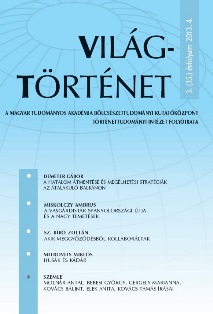Tekintélyuralmi rendszerek a Baltikumban a két világháború között. Hasonlóságok és különbségek
Authoritarian Regimes in the Baltic Area during the Interwar Period: Similarities and Differences
Author(s): Gábor LagziSubject(s): History
Published by: Magyar Tudományos Akadémia Bölcsészettudományi Kutatóközpont Történettudományi Intézet
Summary/Abstract: The three Baltic States (Estonia, Latvia and Lithuania) gained independence in 1918, but shortly after in all these countries the democratic institutions were reversed and authoritarian regimes came to power. In Lithuania the coup d’état was a classical military putsch, while in Estonia and Latvia the takeover was supported by current governments in 1934. The authoritarian regimes sought to eliminate the handicaps of parliamentary democracies, and offered an effective response to internal and external challenges (weak parties in fragmented parliaments and unstable governments, the consequences of the Great Depression, spreading fascist and Nazi ideology from Central Europe to the Baltic region). After the coups, the Baltic countries lost their democratic control, because the government and the country’s absolute leader (Anatanas Smetona in Lithuania, Karlis Ulmanis in Latvia, Konstatnin Päts in Estonia) was not responsible personally before the legislature. It seems that the majority of the citizens of the Baltic States accepted (and to some extent supported) the new governments, not least because of the social and economic stability, as well the cultural development. The Baltic authoritarian systems were undoubtedly conservative and nationalist in their nature, which underlined the need for national solidarity, and criticised the previous democratic, but politically inefficient governments. However, the Molotov–Ribbentrop Pact signed in 1939 brought to an end the authoritarian regimes and the Baltic States’ quest for independence. For long decades, totalitarian dictatorships were to dominate the political and social sphere of the Baltic area.
Journal: Világtörténet
- Issue Year: 2013
- Issue No: 4
- Page Range: 477-498
- Page Count: 22
- Language: Hungarian

